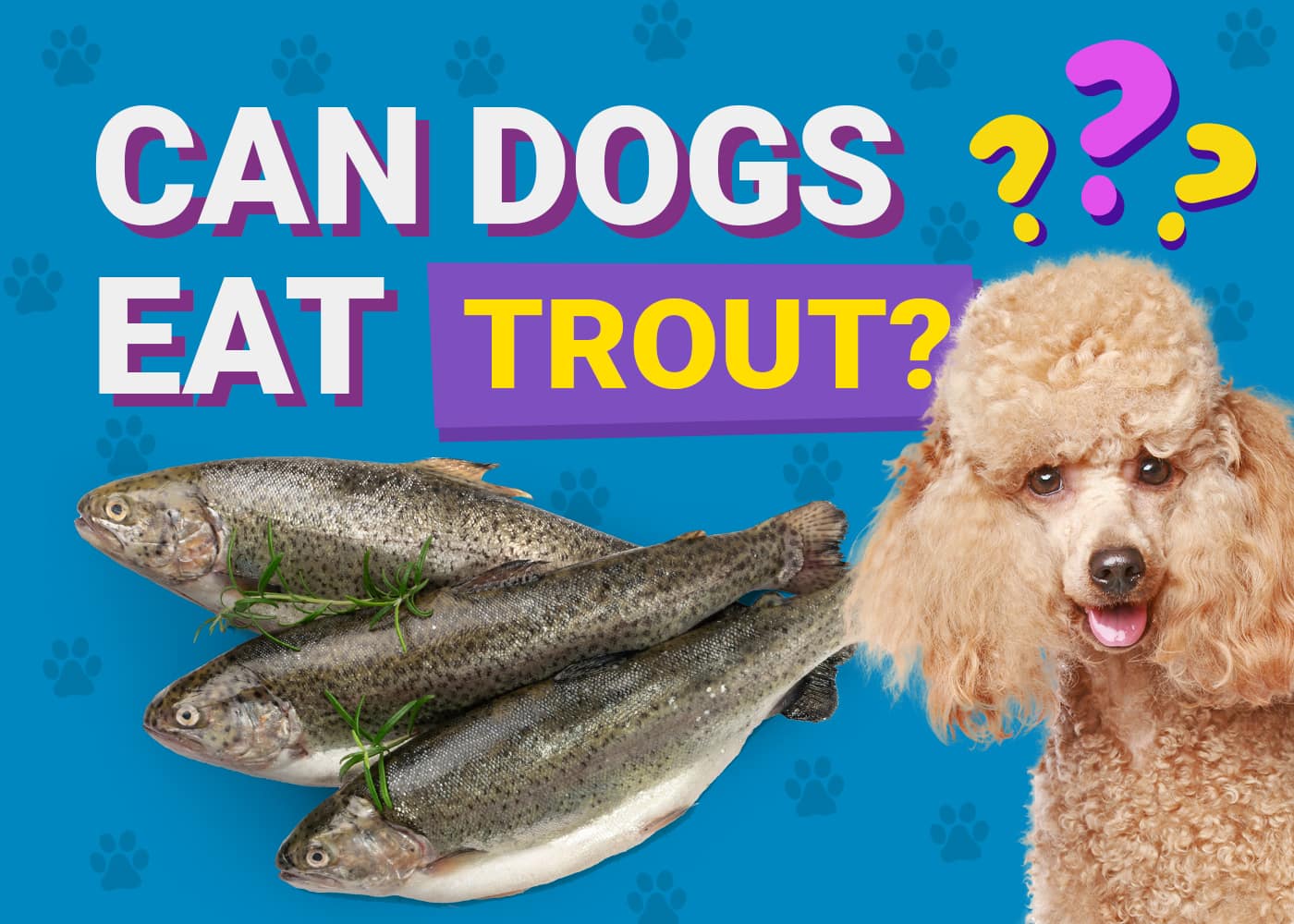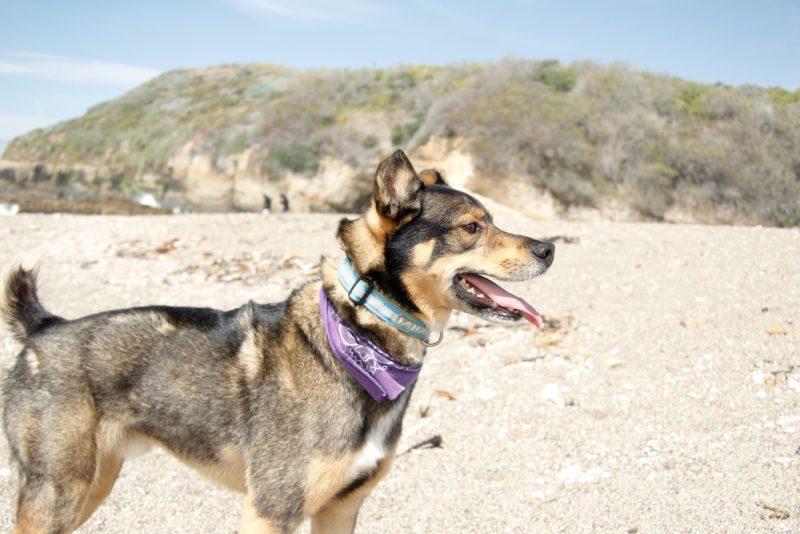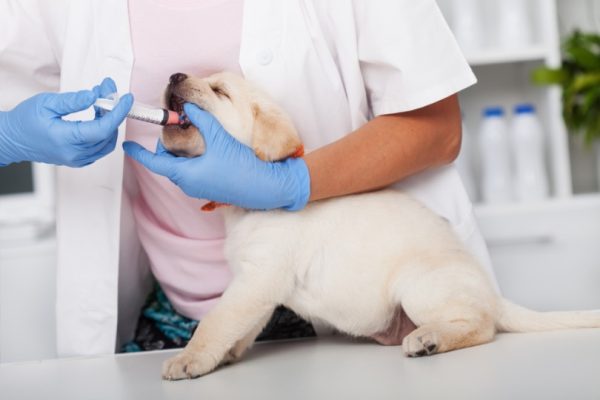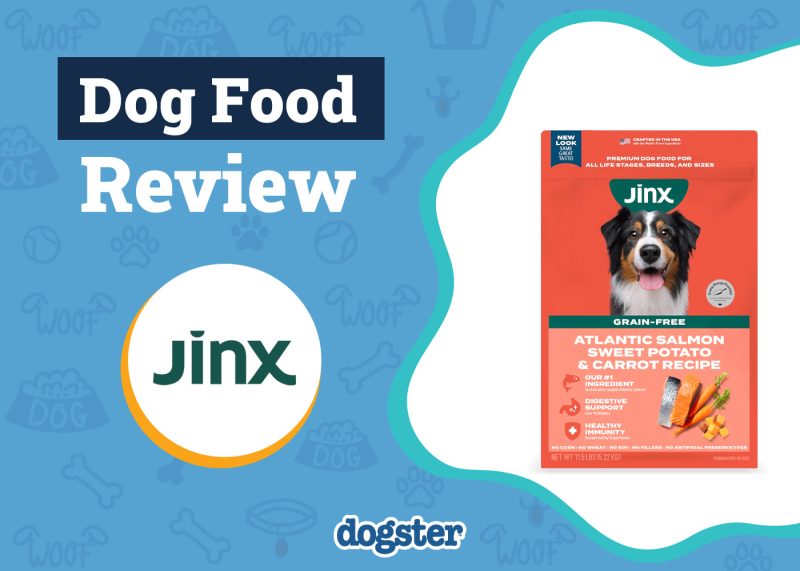In this article
Are you considering giving your dog some tasty trout? You may be wondering if this popular fish is safe for them to digest. So, can dogs eat trout? To cut a long story short, yes they can, but it’s only safe if you cook the fish thoroughly and serve it in moderation. However, eating trout also has the potential to cause many serious health problems if consumed raw or undercooked, so you have to be careful.
There is a significant lack of understanding about feeding trout to dogs, but you won’t be in that group after reading this article.

Nutrition Facts of Trout
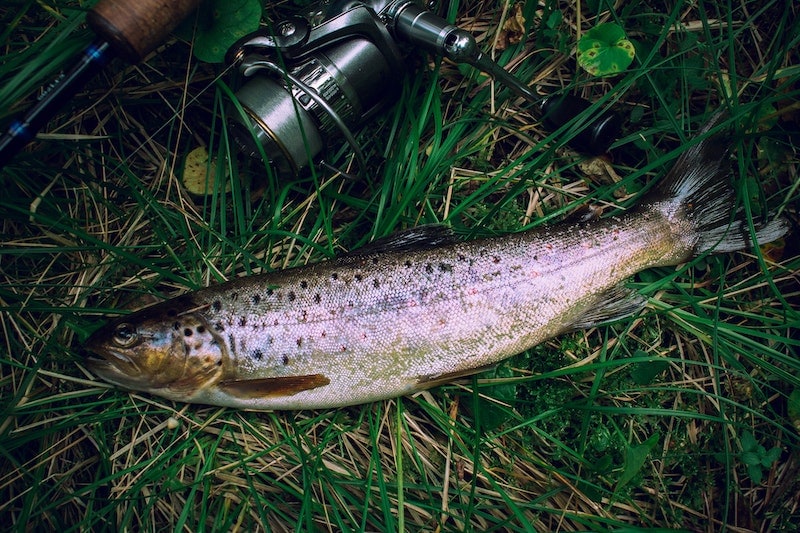
As a member of the Salmonidae family, trout is related to salmon. The following tables will show the nutritional values for raw rainbow trout—the most common trout species—per 100 grams (3.5 ounces) serving, based on the USDA Food Composition Databases.1
| Calories/Nutrient | Amount (kcal/grams) |
| Calories | 119 kcal |
| Carbohydrate | 0 g |
| Fiber | 0 g |
| Sugar | 0 g |
| Fat | 3.5 g |
| Saturated Fat | 0.7 g |
| Monounsaturated Fat | 1.1 g |
| Polyunsaturated Fat | 1.2 g |
| Omega-3 | 812 mg |
| Omega-6 | 239 mg |
| Protein | 20.5 g |
| Vitamin | Amount |
| Vitamin D | 635 IU |
| Vitamin B12 | 4.5 mcg |
| Vitamin B3 | 5.4 mg |
| Vitamin B6 | 0.4 mg |
| Vitamin E | 2.34 mg |
| Vitamin B5 | 0.9 mg |
| Vitamin B1 | 0.1 mg |
| Vitamin B2 | 0.1 mg |
| Folate | 12.0 mcg |
| Vitamin A | 62.0 IU |
| Mineral | Amount |
| Phosphorus | 67.0 mg |
| Selenium | 12.6 mcg |
| Potassium | 481 mg |
| Magnesium | 31.0 mg |
| Manganese | 0.2 mcg |
| Calcium | 67.0 mg |
| Zinc | 1.1 mg |
| Copper | 0.1 mg |
| Iron | 0.7 mg |
| Sodium | 31.0 mg |
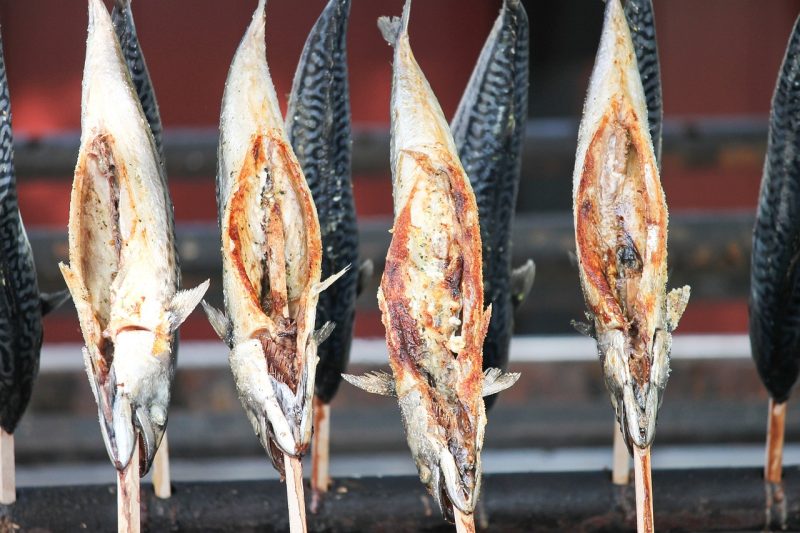
Is Trout Good for Dogs? Nutritional Benefits
- Offers a good source of omega-3 fatty acids: The amount of omega-3 fatty acids in trout is still high, even though it is leaner than salmon. There are roughly 812 mg of omega-3 in a typical 100 grams of trout. It is an anti-inflammatory supplement that benefits the skin and coat of dogs and improves their mobility by supporting aching, stiff joints. Trout is also a rich source of several other essential vitamins and minerals that play an important role in keeping our pets healthy.
- Trout provides large amounts of protein: Many commercial prescription diets include fish as a novel protein, which may be advantageous for dogs that suffer from illnesses like food allergies or other dietary intolerances. One 100-gram serving of trout contains 20.5 grams of protein, making it a protein-rich food.
- Trout is low in mercury and other contaminants: In the United States, it is common to keep trout in freshwater ponds and “raceways,” where they are better protected from contaminants and fed a diet that has been adjusted to conserve resources.
Health Risks of Feeding Trout to Dogs
- The fatal parasite found in salmon is also common in trout. If left untreated, fluke parasites can cause a painful death for an infected dog.
- Trout bones are tiny and can get stuck easily in your dog’s mouth, throat, intestines, and stomach, occasionally even piercing an organ wall. This not only hurts, but it can require an expensive trip to the vet.

Can Dogs Eat Raw Trout?
The American Veterinary Medical Association does not advise canines of any life stage to consume raw or undercooked fish. If your dog eats raw fish, there is a possibility that they will contract Salmon Poisoning Disease (SPD), which can be fatal to them if left untreated. Don’t let the word “salmon” mislead you; SPD also applies to trout.
This potentially fatal condition occurs in dogs after they consume raw or cold-smoked fish, such as trout and salmon, which contain a bacteria-like organism called Neorickettsia helminthoeca that is transmitted by Nanophyetes salmincola, a parasitic flatworm (or fluke). Infected flukes embed in the intestines, letting the bacteria enter the bloodstream. Then, the bacteria will migrate to multiple organs and cause salmon poisoning. The most common signs are weakness, vomiting, fever, loss of appetite, diarrhea, and swollen lymph nodes.
As this condition is treatable if detected in time, take your dog to the vet immediately if signs of poisoning begin to show.
If you need to speak with a vet but can't get to one, head over to PangoVet. It's our online service where you can talk to a vet online and get the advice you need for your pet — all at an affordable price!
Can Dogs Eat Cooked Trout?
If you thoroughly cook trout, your dog is almost certainly not getting salmon poisoning disease. They will even benefit from it because this fish is low in contaminants and high in potassium, protein, selenium, vitamin D, omega-3 fatty acids, etc. Trout is incredibly healthy for our canines when cooked right.
How to Cook Trout for Dogs
First, you need to completely debone the fish before cooking. Then, you can poach, steam, or broil it. Don’t include the head, fins, and tail of trout in your dog’s meal. And remember to remove the skin before eating, as it is very fatty and adds extra calories. There should be no addition of butter, oil, salt, pepper, garlic, onions, or any other seasonings. This naturally tasty fish can be enjoyed by your dog without these substances, which can cause health issues.
Again, ensure you cook trout thoroughly to make it safe for your dog. The USDA Food Safety and Inspection Service recommends that fish should reach an interior minimum temperature of 145 degrees.

How Much Trout Should You Give Your Dog?
You can give trout to your furry friend as a dietary supplement or a special treat, depending on their general health and nutritional requirements. This fish can be a daily component of their diet if they need a new source of protein to treat medical issues like arthritis, allergies, or inflammatory bowel disease, but should form part of a balanced diet.
If you intend to feed trout as a regular food, you should talk to your veterinarian to figure out the proper serving amount. Based on your dog’s age, weight, and health, they will advise you on the appropriate amount of trout to include in your pet’s diet. Only feed your dog a small portion the first time and see whether they can eat it without having a gastrointestinal upset or allergic reaction.

What Fish Is Fine for Dogs to Eat?
Fish that are safe for canines typically have lower tissue mercury levels and parasites, including:
- Salmon
- Whitefish
- Cod
- Catfish
- Light tuna fish (canned)
- Flounder
- Herring
- Whiting
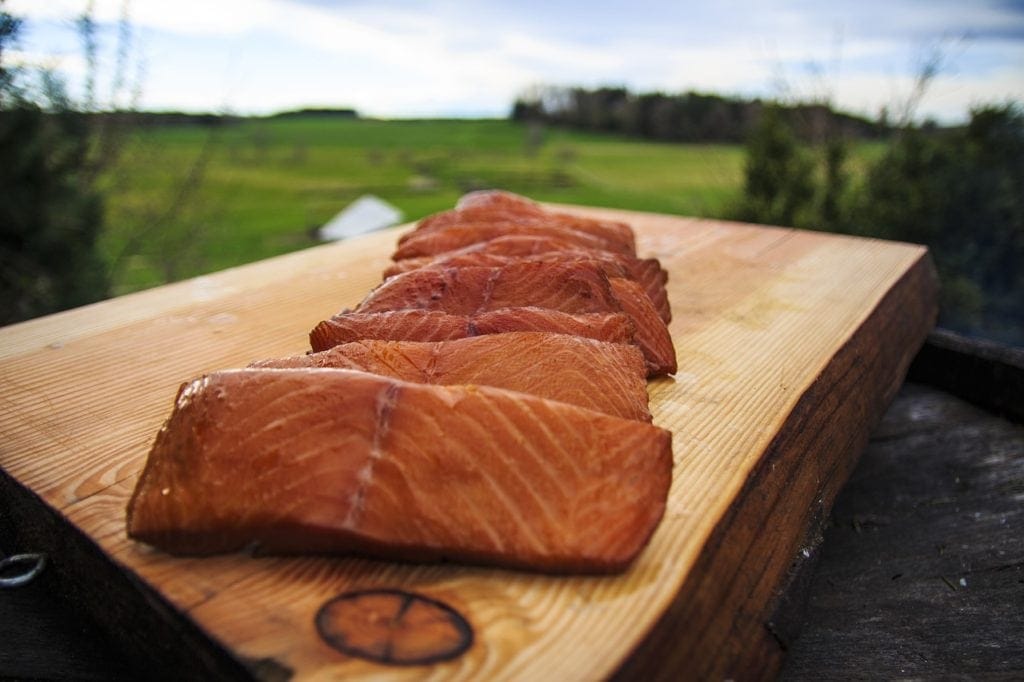
What Fish Can Dogs Not Eat?
Generally, large fish with a long life span are unsafe for dogs to consume since they accumulate heavy metals and pose a risk to canines due to the high levels of mercury in their bodies. Guidelines from the Food and Drug Administration advise avoiding eating the following kinds of fish:
- Tilefish
- King mackerel
- Swordfish
- Shark
- Albacore tuna (canned)
In addition to accumulating toxic levels of mercury in their tissues, these fish frequently carry parasites in their skin, muscles, and internal organs.

Summing Up
While dogs can eat trout, you have to be very careful. Never give raw fish to your beloved pet, and don’t underestimate how dangerous SPD can be. Remember that it’s not fish; it’s parasites that pose a real threat and risk to our furry friends. So, make sure you only feed them thoroughly cooked trout, and occasionally only. Whenever you see your dog showing symptoms of poisoning or allergy to this fish, take them to the vet immediately.
Trout can certainly be a great snack for your canine friend, but only in moderation and when cooked well.
See also:
- Can Dogs Eat Crawfish? Vet Reviewed Facts & FAQs
- Can Dogs Eat Pizza? Vet-Reviewed Nutrition Facts & FAQ
